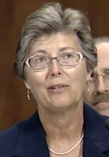© 2017 The Texas Lawbook.
By Mark Curriden
(May 25) – Van Beckwith looked pissed.
Lawyers for the U.S. Department of Justice used closing arguments in a major antitrust trial earlier this month to describe Beckwith’s clients as liars and cheats and accused the Baker Botts partner and his team of manipulative courtroom tactics.

Then, during closing arguments, the lead lawyer for the DOJ attacked. She said the testimony of Beckwith’s clients was a complete fairytale and that the defendants employed “every trick in the book” in its effort to win a lawsuit and become a greedy corporate monopoly.
The government lawyer also accused Beckwith and his team of being complicit, saying they employed “cloak and dagger” courtroom tactics and last minute “legal stunts” by giving the federal judge an ultimatum.
Beckwith, who was fighting for the survival of a West Texas town and its families, fired back.
“It’s insulting to be accused of it,” the six-foot-five-inch Dallas lawyer told U.S. District Judge Susan Robinson of Delaware, while staring at the Justice Department lawyers.
At the heart of the dispute is a November 2015 agreement by Energy Solutions, a Utah-based nuclear waste disposal company, to acquire its chief rival, Waste Control Specialists of Dallas, for $367 million.
Last November, the Justice Department sued the two companies to stop the transaction, claiming that the deal would hurt competition and consumers and give the newly combined company an unfair monopoly in the world of nuclear and hazardous waste disposal.

“[Antitrust] laws are designed to protect competition, and while competitors may suffer from competition, it is the consumers who benefit,” Julie Elmer, a trial attorney with the DOJ, told Judge Robinson. “The evidence presented in this trial has shown that competition between Energy Solutions and WCS has indeed been hard, but that their consumers have benefited.”
WCS, a company started more than two decades ago by the now-deceased Dallas businessman Harold Simmons, is a corporate subsidiary of Dallas-based Valhi. WCS argued that the business was a financial failure and that a sale to Energy Solutions was the only solution available.
Most antitrust trials are dreadfully boring, filled with nerdy expert witnesses arguing over valuations, marketplace economics and whether mergers are vertical or horizontal agreements. And the WCS case certainly had its full share of such testimony.
But Beckwith and his team also called key company leaders to testify about the WCS’s financial struggles and its importance to the community.

Witnesses said Simmons created WCS to be the premier operation in the U.S. to handle the treatment, storage and disposal of radioactive and hazardous waste. He purchased 14,000 acres in the West Texas town of Andrews, which borders New Mexico. But the vision and strategy never turned into success.
“The financial performance is dismal – never been able to turn a profit,” Beckwith told the judge. “Since 2009, the company has lost $236,807,000. Its best year was an $8 million loss.”
WCS officials testified that they repeatedly had to delay paying bills and payroll and had not reimbursed its parent company, Valhi, for tens-of-millions of dollars in corporate expenses.
“[WCS is] borrowing hundreds of millions of dollars from our parent … the borrowing cannot at this point continue,” Beckwith argued. “We’re digging a hole. It’s a money pit.”
Beckwith also contended that blocking Energy Solutions’ purchase of WCS would destroy families and the community of Andrews because Valhi would no longer pay for WCS’s losses and would simply close the operation. He noted that 180 people – two percent of the entire population of Andrews – would instantly lose their jobs.
Throughout the 10-day trial, lawyers for the DOJ and the two companies had been friendly, even cooperative at times. Yes, they advocated for their respective clients and differed on their interpretations of the law and facts, but there had been no hint of animosity or personal attacks by either side throughout the case.
Until closing arguments on May 5.
“This case is about Energy Solutions doing everything in its power to either destroy or acquire its only rival and about WCS’s parent companies using every trick in the book to close an anticompetitive deal that would net them a monopoly premium for assets they claim are worth less than nothing,” Elmer said at the start of her closing arguments.
Elmer said Beckwith’s argument that the judge should approve the Energy Solutions acquisition or WCS would have to shut its doors showed that he was “engaged in tactics which appear to issue an ultimatum to this court.”
“This is a made-for-litigation fairytale, and the law is clear that behavior undertaken to improve a party’s litigating position are to be viewed with deep skepticism,” Elmer told the judge. “This cloak-and-dagger, last-minute maneuvering should be heavily discounted as pure litigation strategy.”
At the defense table, Beckwith sat steaming. Lawyers close to the case say he saw Elmer’s remarks as attacks against the credibility and honesty of his clients. For him, the case had long become personal.
During the past year, Beckwith had gotten to know his clients and saw it as his mission to help them save their jobs. To prepare for the case, Beckwith flew Southwest Airlines from Dallas to Midland and then drove 71 miles on Texas Highway 176 to his client’s operation outside of Andrews. There, he says, he met “hardworking women and men who make their livelihoods” maintaining a safe and effective operation for the disposal of radioactive waste.
So, he fought back.
“There are no litigation strategies, no litigation stunts,” Beckwith told Judge Robinson. “It is insulting to be accused of it.
“Never in my 27 years of practicing law have I had three witnesses more human, more displaying of their concerns and their character, laying it on the line,” he continued. “These witnesses from WCS are real people. You met them. They have real fears. They have real sadness, real emotion.”
Beckwith also told the judge that the government unfairly and wrongly “accuses its citizens of not telling the truth” when it comes to possible alternatives to the deal with Energy Solutions.
“A for-sale sign has been out front for years,” he said. “No other buyers [stepped forward]. All these people passed.
“You would think that if the company was worth something, that somebody would at least make a minority investment… but nobody stepped forward,” Beckwith argued.
WCS even made it clear in its publicly filed statements from 2011 to 2015 that it needed help.
“[We said] we’re considering strategic options. Come see us. Buy us a cup of coffee. Help us here,” Beckwith told the judge. “Everybody passed. No other offer exists.”
Judge Robinson told the lawyers for both sides that she appreciated their efforts. She plans to retire from the federal bench this summer and this is one of the final cases she has on her docket.
A decision could come any day.
Other lawyers involved in the case are Baker Botts partner Joe Ostoyich and associates Charles Strecker, Vincent Wagner and Allie Smith. Skadden Arps partners Tara Reinhart, Kenneth Schwartz and Steve Sunshine are also part of the team.
© 2017 The Texas Lawbook. Content of The Texas Lawbook is controlled and protected by specific licensing agreements with our subscribers and under federal copyright laws. Any distribution of this content without the consent of The Texas Lawbook is prohibited.
If you see any inaccuracy in any article in The Texas Lawbook, please contact us. Our goal is content that is 100% true and accurate. Thank you.
